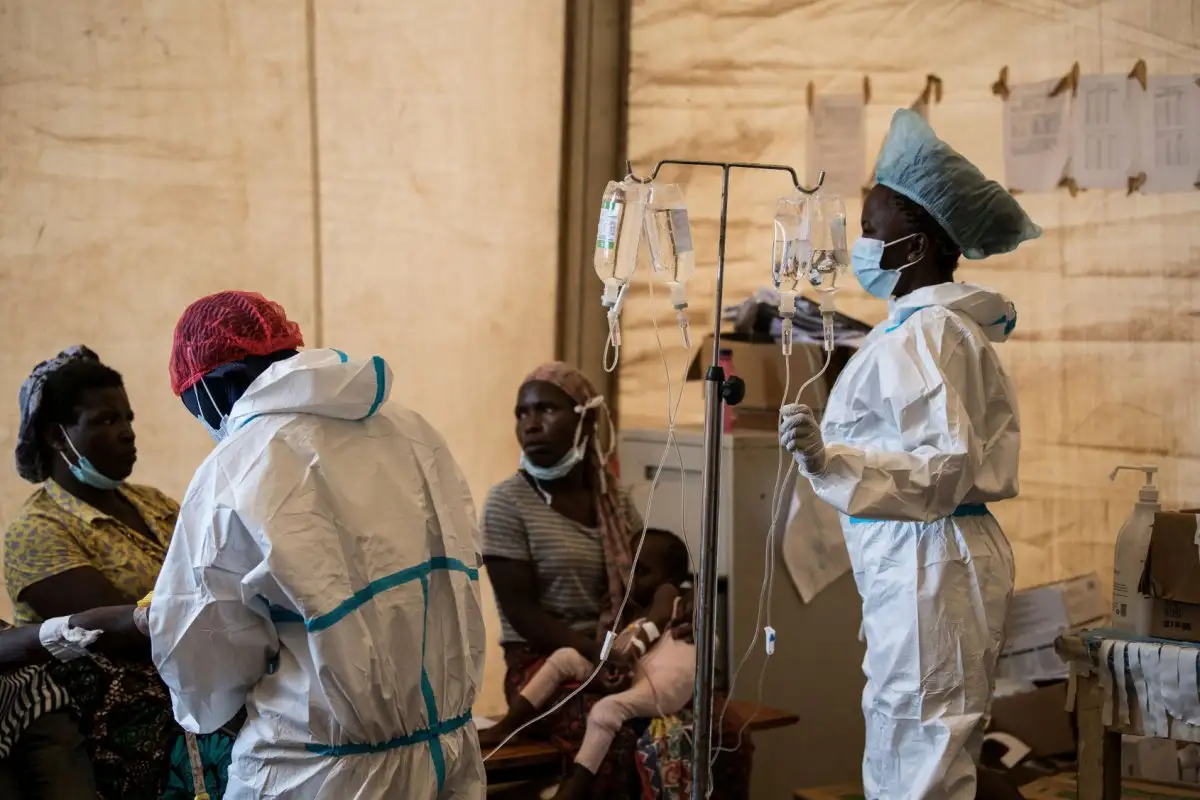A severe cholera outbreak in Zambia has left thousands infected and overwhelmed the healthcare system, with at least 432 reported deaths since October, according to government figures. Sandra Nyendwa and her seven-year-old son fell critically ill during the outbreak, joining the ranks of more than 10,000 people affected by the disease.
The outbreak has spread across nine out of Zambia’s ten provinces, with the majority of cases concentrated in the capital, Lusaka—a city of approximately 3 million people. Authorities have established a makeshift treatment center outside the National Heroes Stadium to address the surge in cholera cases.
Cholera, a waterborne disease, is transmitted through contaminated food or water, particularly in crowded environments where access to clean water and sanitation is limited. Serious cases can lead to acute diarrhea and, if left untreated, can result in death.
Residents like Sandra Nyendwa, who used to drink unfiltered water without concern, have now become more cautious about water sources. “We didn’t know that there was an outbreak of the disease, but now we know,” Nyendwa stated, emphasizing the importance of chlorination and clean water practices.
Zambia has mobilized retired health workers and volunteers to assist with the cholera response, acknowledging the strain on the healthcare system. Health Minister Sylvia Masebo highlighted the challenges, stating, “We’ve had to remove certain staff from other facilities to bring them here. And that itself is a negative because it does affect the operations of the health centers.”
The outbreak in Zambia reflects a broader trend, with neighboring countries such as Zimbabwe, Malawi, and Mozambique also grappling with cholera outbreaks since the previous year. The surge in worldwide outbreaks has further strained resources, leading to shortages of cholera vaccines in affected regions.



